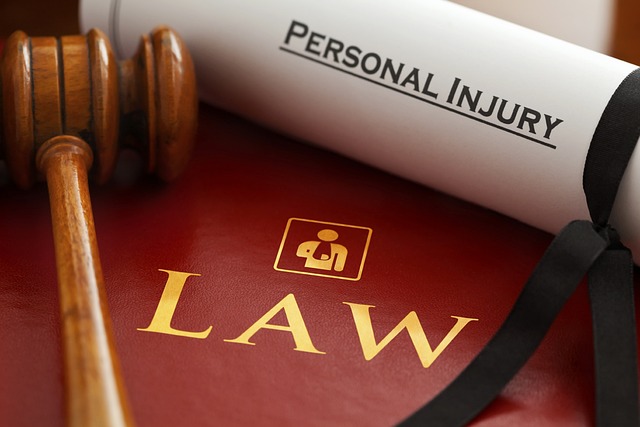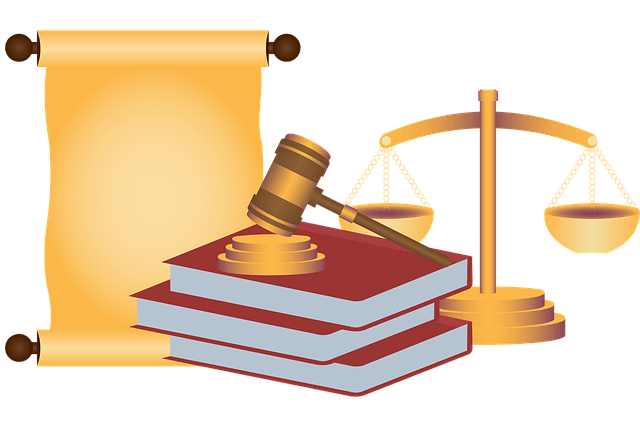Personal injury law is a specialized area of legal practice focusing on providing compensation to individuals who have suffered harm due to someone else's negligence. This field encompasses various scenarios like vehicle accidents, medical malpractice, slip and fall incidents, and product defect cases. Central to any personal injury claim is the plaintiff's obligation to prove that the defendant breached a duty of care, which led to the damages incurred. Evidence gathering, expert witness testimony, and understanding complex legal precedents are pivotal in these cases. The process involves establishing liability and quantifying both economic (such as medical bills) and non-economic damages (like pain and suffering). Legal expertise is crucial for navigating insurance claims, adhering to statutes of limitations, and achieving fair settlements through negotiation or litigation. Recent legal advancements, such as the Johnson v. Transportation Co. case, emphasize the significance of robust evidence and expert testimony in determining fault and damages. Additionally, new regulations aim to protect personal injury claimants from unethical insurance practices. As personal injury law evolves with technological advancements like telemedicine, it's imperative for legal professionals to stay informed and adapt to these changes to effectively represent clients in this dynamic field.
Navigating the intricacies of personal injury law can be a daunting task for those unfamiliar with its framework. This article serves as a comprehensive guide, illuminating the essential aspects of personal injury law through an overview of key concepts, landmark cases, and practical steps for filing claims. It delves into the pivotal role of expert witnesses in litigation, offering insights into their impact on case outcomes. Additionally, recent legal developments are dissected with case studies that highlight current trends, ensuring readers are well-equipped to understand this vital area of law.
- Understanding Personal Injury Law: An Overview of Key Concepts and Cases
- Navigating the Complexities of Personal Injury Claims: Steps and Strategies
- The Role of Expert Witnesses in Personal Injury Litigation: Insights and Impacts
- Recent Developments in Personal Injury Law: Case Studies and Legal Trends
Understanding Personal Injury Law: An Overview of Key Concepts and Cases

Personal injury law is a distinct area within the legal field that focuses on providing legal recourse and financial compensation to individuals who have suffered harm or injury—physical or psychological—due to the negligence or wrongful actions of another party. This body of law encompasses various types of cases, from car accidents and medical malpractice to slip-and-fall incidents and product liability claims. At its core, personal injury law aims to protect the rights of those harmed by ensuring they are adequately compensated for their losses, including medical expenses, lost wages, and pain and suffering.
To navigate this complex area effectively, one must understand the key concepts underpinning personal injury law. A plaintiff must establish that the defendant owed them a duty of care, that this duty was breached through negligent or reckless behavior, and that this breach directly caused their injuries. Notably, the specifics of these duties can vary depending on the jurisdiction and context of the case. Seminal cases in personal injury law have set precedents for how these concepts are interpreted and applied, shaping the legal landscape and guiding future litigation. Understanding the nuances of these cases, such as those involving landowners’ responsibilities or manufacturers’ obligations to consumers, is crucial for anyone involved in personal injury claims. Legal professionals adept at this specialization can expertly represent clients, ensuring their rights are upheld and their compensation is just.
Navigating the Complexities of Personal Injury Claims: Steps and Strategies

Navigating the intricacies of personal injury law involves a series of steps and strategic considerations that can significantly influence the outcome of a claim. When an individual has suffered harm due to another party’s negligence or wrongful act, understanding the legal framework is paramount. The first step in this process is establishing liability; this requires demonstrating that the other party owed a duty of care and breached this duty, causing your injury. Evidence collection, such as medical records, witness statements, and documentation of the incident, is crucial at this juncture.
Subsequently, once liability is established, the focus shifts to quantifying damages. This involves assessing both economic losses, like medical expenses and property damage, and non-economic losses, encompassing pain and suffering, emotional distress, and loss of enjoyment of life. Engaging with a personal injury attorney at this stage can be highly beneficial, as they bring expertise in navigating the complexities of insurance claims, statutes of limitations, and potential litigation. Legal counsel will also guide you through the process of negotiating with insurance companies, advocating for fair compensation that accounts for both current and future losses stemming from your injury. Throughout this journey, staying informed about personal injury law and maintaining open communication with your legal representative are key strategies to effectively navigate the complexities of personal injury claims.
The Role of Expert Witnesses in Personal Injury Litigation: Insights and Impacts

Personal injury law encompasses a significant role for expert witnesses, who provide critical insights into the nuances and complexities of a case. These specialists, whose expertise ranges from medical professionals to accident reconstructionists, play a pivotal role in establishing the facts surrounding an incident and its subsequent impact on the victim. Expert witnesses offer authoritative evidence that can be pivotal in determining liability and assessing damages. Their testimony helps clarify technical aspects of an injury or accident, making it more understandable to laypersons who make up the jury or decision-making body in personal injury litigation. The credibility and clarity of their explanation can influence how a case unfolds, often tipping the scales in favor of the plaintiff by substantiating the extent of harm suffered. Moreover, expert witnesses aid in quantifying future losses, which is crucial for securing fair compensation for ongoing or long-term injuries. Their comprehensive understanding of both the immediate and long-term implications of personal injury events ensures that the legal system operates with a higher degree of accuracy and fairness.
Recent Developments in Personal Injury Law: Case Studies and Legal Trends

Personal injury law continues to evolve, with recent developments shaping the way claims are approached and settled. A pivotal case study that has made waves in the legal community is the Johnson v. Transportation Co. trial, where a plaintiff successfully argued for compensation after sustaining injuries from a bus accident due to negligent driving. This landmark case emphasized the importance of clear evidence in establishing fault and the significance of expert testimony in corroborating victim claims. Another notable trend is the increased scrutiny on insurance companies’ practices, with legislative changes aiming to prevent unethical tactics that have historically disadvantaged injury victims. For instance, new regulations in several states have been implemented to address the issue of insurers offering low settlements without adequate consideration of the long-term impact of the injuries. These legal trends underscore the ongoing need for individuals to stay informed about their rights under personal injury law and the importance of consulting experienced legal counsel when navigating such complex matters. The intersection of technology, particularly with the rise of telemedicine, has also introduced new considerations in establishing causation and liability in personal injury cases, reflecting the dynamic nature of this area of law. Legal professionals must remain vigilant and adaptable as case studies like these continue to influence and redefine the practice of personal injury law.
Personal injury law serves as a critical legal avenue for individuals who have suffered harm due to another party’s negligence or wrongdoing. This article has provided an overview of key concepts, outlined the steps and strategies for navigating personal injury claims, examined the significant role of expert witnesses in litigation, and explored recent developments in this area of law. Understanding these aspects is crucial for those affected by such incidents and for legal professionals alike. As the legal landscape evolves, staying informed about personal injury law becomes increasingly important to ensure just outcomes and promote safety.
